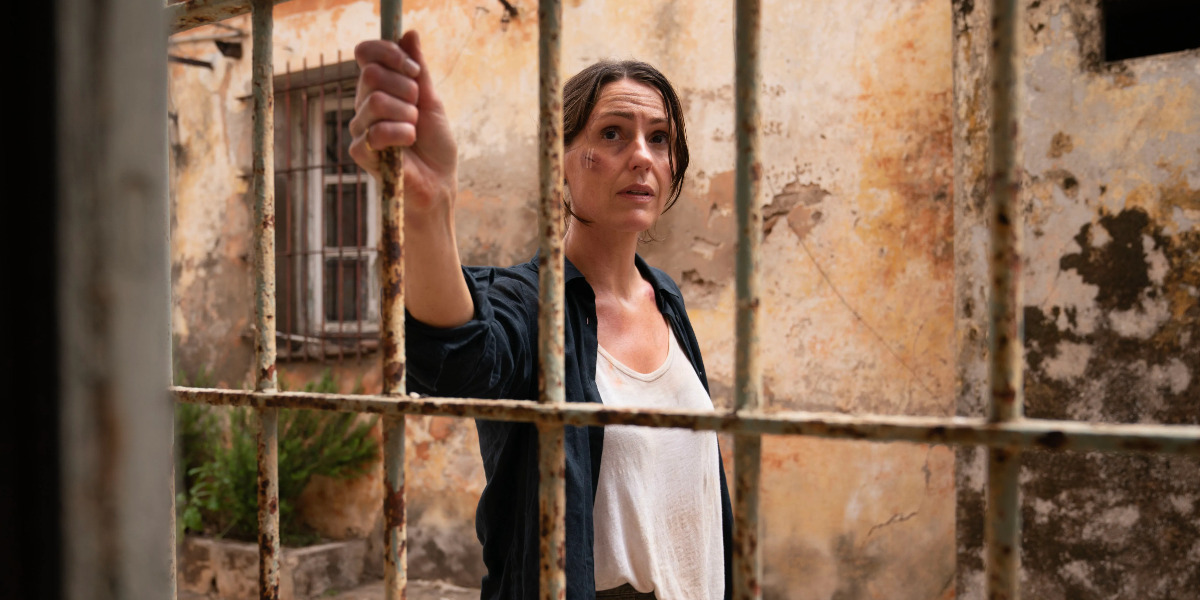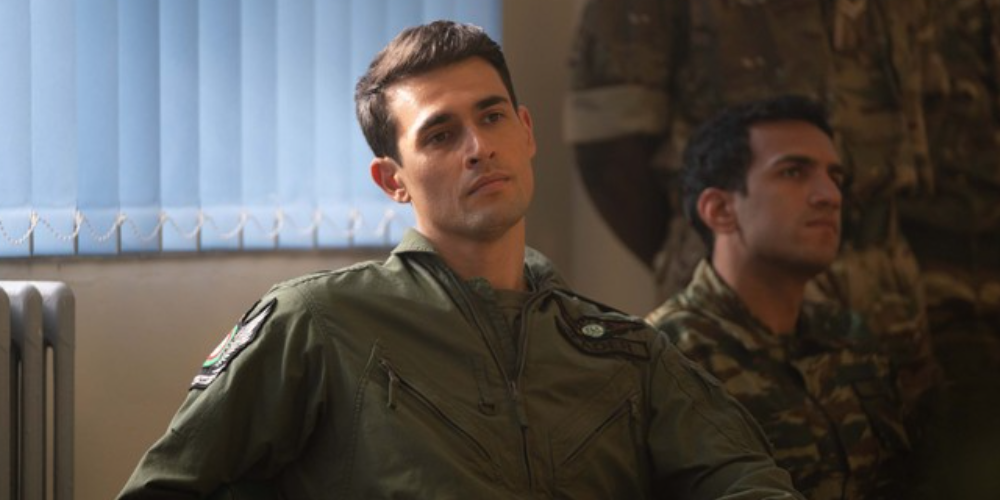‘Vigil’ season two revolves around DCI Amy Silva’s investigation into an abrupt attack upon a weapons demonstration session between the UK Air Force and their close political partner, Wudyan, a lucrative Middle Eastern country. As such, the narrative finds Amy flying away from home to investigate the joint military base at Wudyan while her partner, Detective Kirsten Longacre, works on the same case in Scotland. Early on, the detectives uncover the possibility of involvement from a Wudyani socio-political group, Jabhat Al Huriya, who routinely aggravate their dictatorship government. For the same reason, the group earns the terrorism label.
Nevertheless, with the show’s progression, Jabhat Al Huriya finds a nuanced depiction, sparking conversations about the social climate within repressive regimes. Thus, given the group’s socio-political significance in the show, viewers must be curious to know if Jabhat Al Huriya possesses any connections to real life.
Jabhat Al Huriya Is a Fictional Rebellion Group
No, Jabhat Al Huriya from the second season of ‘Vigil’ is not based on an actual rebellion group from real life. After tackling a crime-driven, conspiratorial narrative set in the UK Navy in season one, ‘Vigil’ takes on the Air Force sect within the military in its second season. Thus, with the central storyline revolving around the political partnership between the UK and Wudyan— built on the former’s weapons export to the Middle Eastern regime— the narrative highlights certain socially relevant themes.

Nevertheless, in order to do so, ‘Vigil’ employs a fictitious narrative built around similarly fabricated elements. Consequently, Wudyan, as a Middle Eastern country, remains one such fictional element. Since the country itself doesn’t exist in real life, the rebellion group, Jabhat Al Huriya, resisting the nation and its dictator’s repressive rule, also becomes rendered in fictionality.
Even so, despite its inherently fictional disposition, Jabhat Al Huriya ends up presenting some realistic ideas about political power, rebellion, and its relation to terrorism in a way that remains socially relevant to the contemporary global political climate. Through the fictionalized rebellion group, the show conveys the significance of political resistance while showcasing the negative impact of such violence. As such, the narrative essays a nuanced take on the same, allowing several conversations about the relation between rebellion and terrorism to co-exist.
Over the years, several rebellion groups have emerged in countries, especially Middle Eastern countries, with controlling, repressive regimes that later went on to become terrorist sects. However, there have also been instances of activist rebellion groups seeking human rights that individual governments have antagonized for going against their undemocratic regimes.
As such, through Jabhat Al Huriya’s nuanced depiction, the show equips a meticulous exploration of the social climate within tyrannical political rule. Nevertheless, despite the real-life prevalence of such groups, the ‘Vigil’ equips an entirely fictional organization within its storyline. Ultimately, Jabhat Al Huriya remains firmly rooted in fictionality.
Read More: Is Alpha R-PAS Real Drone Technology? Is Alban-x an Actual Tech Company?


